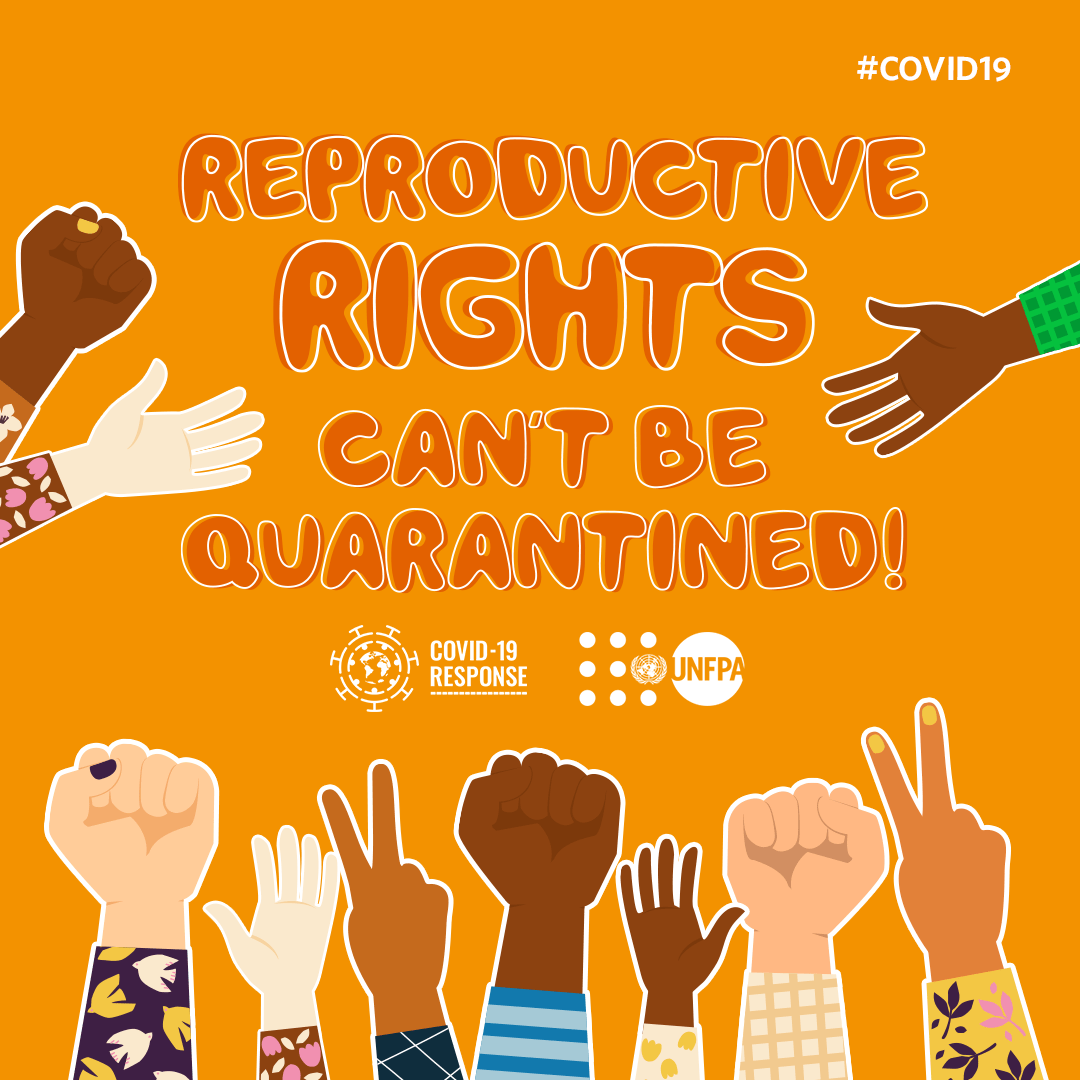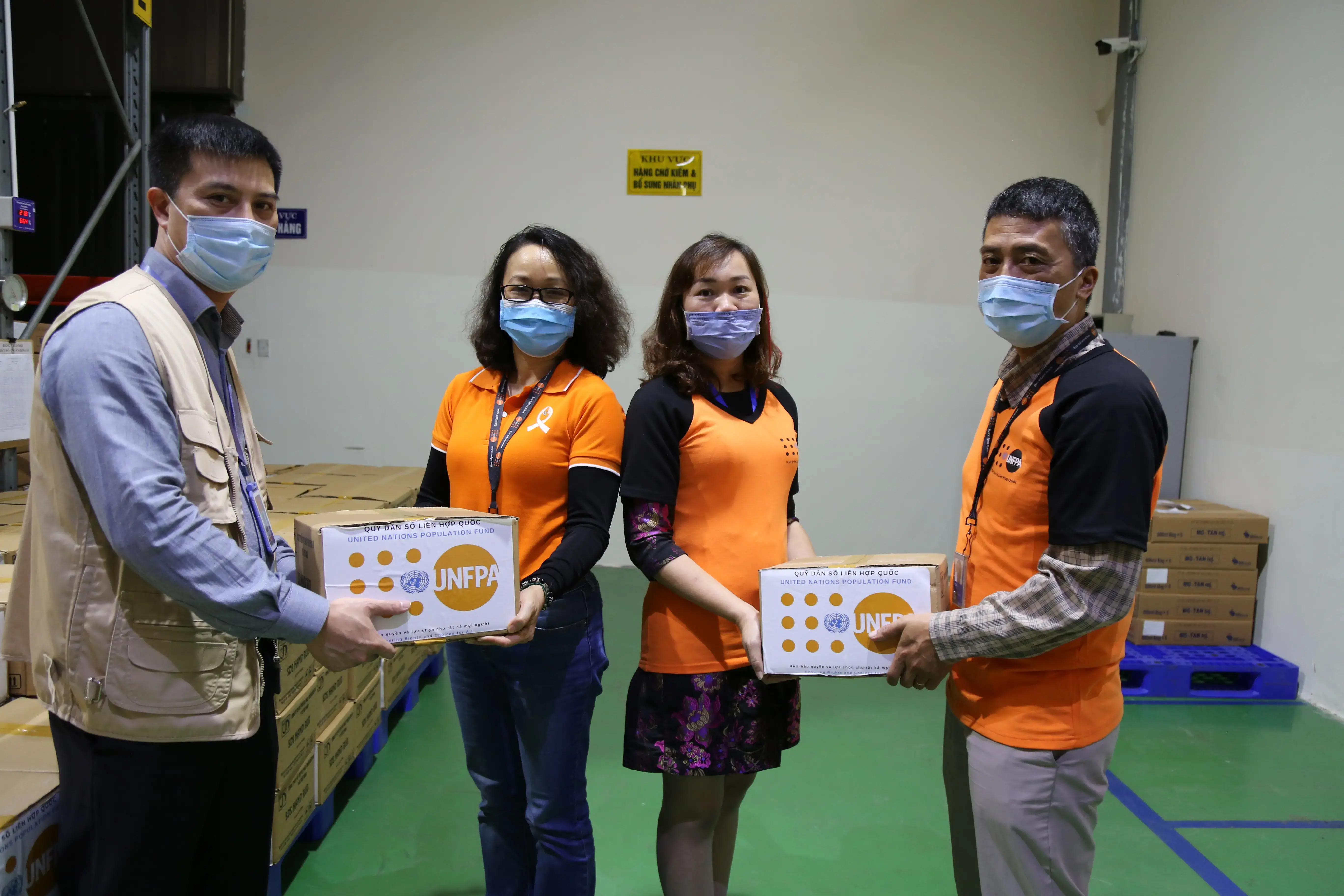Op-ed on World Population Day 2020
Written by Dr. Natalia Kanem, UNFPA Executive Director and Ms. Naomi Kitahara, UNFPA Representative in Viet Nam
COVID-19 has taken an enormous toll on women and girls around the world as a direct consequence of national lockdowns and the sidelining of sexual and reproductive health services by health systems struggling to respond to the pandemic. As the crisis rages on, the number of women unable to access family planning, facing unintended pregnancies, gender-based violence and other harmful practices could skyrocket in the months ahead.
A recent study commissioned by UNFPA, the United Nations sexual and reproductive health agency, highlighted that if mobility restrictions continue for at least 6 months with major disruptions to health services, 47 million women in low- and middle-income countries may be deprived of modern contraceptives, resulting in 7 million unintended pregnancies. The disruption of UNFPA’s programmes on the ground could result in 2 million cases of female genital mutilation and 13 million child marriages that could have been averted by 2030.
We can also expect up to 31 million additional cases of gender-based violence for every 6 months of movement restriction measures. Many women are trapped with abusers at a time of heightened household tensions and reduced prevention and protection efforts, social services and care. In Viet Nam, reports of gender-based violence have jumped by 20 per cent this year in the UNFPA-supported hotline services.
This is just the current snapshot; the future of what we call the “shadow pandemic” could be much worse. UNFPA projects that COVID-19 will slash by at least one third global progress towards ending preventable maternal deaths, unmet need for family planning and gender-based violence and harmful practices against women and girls in this decade. The Technical Brief, which has just been released by UNFPA Viet Nam, points to the 2020 estimate that unless urgent intervention is done now, Viet Nam is likely to be adding 298 maternal deaths even in the best case scenario (i.e., 44% increase), and 677 in the worst case scenario (i.e., 65% increase), as a negative impact of Covid-19. It means that a lot more Vietnamese women are likely to die from pregnancy and childbirth in 2020, which results in the reversal of the developmental gains that Viet Nam has enjoyed in the past 10 years in reducing maternal mortality.
While the spread of the coronavirus has slowed down in some developed countries, it is rapidly increasing in parts of the developing world – including in countries where national health systems were already overstretched before the pandemic and those experiencing protracted humanitarian crises.
UNFPA staff around the world are working around the clock to ensure access to sexual and reproductive health services and to protect essential workers such as midwives. We are also doing our part to protect women and girls at risk of gender-based violence, to lobby for inclusion of essential services to address gender-based violence in preparedness and response plans for COVID-19, and to make modern contraceptives widely available to avoid unintended pregnancies.
We cannot do this alone. UNFPA calls on governments and partners to prioritize the sexual and reproductive health of women and girls and respond urgently to their needs, especially in humanitarian situations.
In the first year of the Decade of Action to achieve the Sustainable Development Goals by 2030, we must not allow the coronavirus to further worsen inequalities, including gender inequality. Assisting people affected by humanitarian crises is not only the right thing to do; it is the smart thing to do. Failure to respond may result in countless lives lost and lead to a future resurgence of COVID-19 in fragile and conflict-affected countries.
Pregnancy doesn't stop during a pandemic. Neither does childbirth. And neither do human rights. On World Population Day, it’s time to reaffirm and act on our collective resolve to secure sexual and reproductive health and rights for all.



